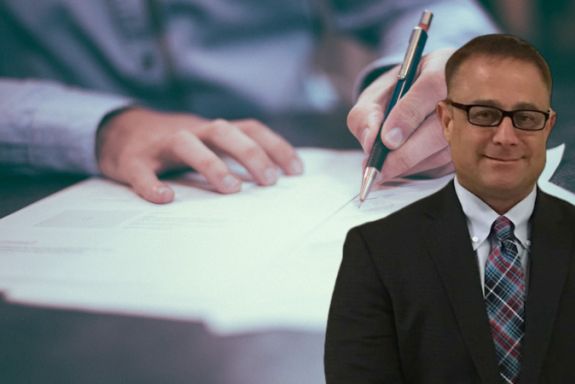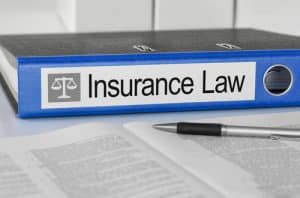

If we don’t win, you don’t pay.
NO WIN – NO FEE

ON CALL 24/7

U.S. Marine

What California car insurance requirements are for minimum liability coverage and what you should purchase remains a cause for concern. Liability coverage limits are easily exceeded in the age of hyperinflation.

Introduction to California Automobile Insurance
Car insurance laws are not updated to keep up with the cost of living, so caveat emptor if you think you might get injured in an accident down the road. (buyer beware.).
Mandatory minimum auto insurance helps negligent parties pay for the injuries and property damage that may occur when a person owns and drives a motor vehicle on CA roads, bridges, highways, and even private parking lots. Below, a top-rated California car insurance attorney will discuss various car accident policies. But what about covering a catastrophic injury or death? What then?
This article aims to help State of California consumers make informed decisions about the right policy limit coverage before spending money on the wrong auto insurance. It helps if you read the declaration of coverage value and exclusions in your auto policy before you accept by signing.
So if you can’t find one attached to your liability policy, ask your insurance agent or broker to text you a copy and read along. First, your insurance policy is a binding legal document. Understand your policy limits for collision coverage first and foremost. A minor accident could exceed the coverage limits you bought. Depending on your zip code, a total loss for used car accidents could be a bumper repair for a Mercedes, Tesla, or a sports car.
These insurance law basics below will assist even the least legally talented brains in understanding their rights, duties, limits, and obligations under their auto insurance policy. The same rules will typically follow by other motor vehicles, including pickup trucks, passenger vans, scooters, motorcycles, or other private passenger vehicles used on surface streets.
Our business is ensuring you know your rights and seeing you get paid the most compensation in court if we cannot settle car accidents fairly and justly with the insurance adjuster.
California Basic Auto Insurance Law
To register your car, you must show proof of financial responsibility to the California Department of Motor Vehicles. Get in a car crash with property damages or personal injury while driving your own vehicle. You must show these people and the California Highway Patrol or other law enforcement agencies that you are financially responsible for covering minimum damages limits for California car accident cases. (The police department will include this proof of insurance and driver’s license info in the police report for the insurance company later.).
Normally, this is the total minimum amount most people carry for certain obligations in most accidents. Satisfying the bodily injury limits and property damage amounts can be done using self-insurance, a bond, or, more commonly, buying an auto liability insurance policy of insurance. Consult an insurance law attorney to discuss these and other options before buying or leasing a vehicle in California. Make sure the limits are suitable for your car and market.
California law requires that:
“All drivers and all owners of a motor vehicle shall at all times be able to establish financial responsibility and shall at all times carry in the vehicle evidence of the form of financial responsibility in effect for the vehicle.”
If you fail to carry mandatory minimum auto liability insurance, the police issue you a citation, and the court can levy a fine. You can even have your license suspended or have your vehicle booted and impounded, with storage fees accruing daily. This is a big deal and must not be ignored. This is considered a public safety issue, not to be trifled with insurance agents. The plaintiff’s insurance company can also pursue subrogation against you to cover anything they paid you caused that up to their limits!
How Do Auto Insurance Companies Look at Things?
You must understand the basics of an auto insurance claim and financial recovery in a California car accident. A good understanding of car insurance claims and how insurance companies treat physical injuries remains essential, whether it involves bodily injury or property damage to motor vehicles.
Understanding a third-party claim or additional coverage will be valuable to recover compensation. Below, our Los Angeles personal injury attorneys specializing in U.S. insurance law go over the ropes of California car accidents and making insurance claims.
What are the Basic Duties of Insurance Companies?
California requires the following of auto insurance companies within 15 days of receiving an insurance claim:
- Acknowledge insurance
- Begin a liability investigation
- Provide forms, instructions, and reasonable assistance
- Respond to all inquiries or communications
In addition, the insurer must:
- Accept or deny a claim immediately (but no later than 40 days from receiving proof of your claim.).
- Pay reasonable towing expenses unless the insurer told you about towing facility to send your vehicle first.
- Offer a fair insurance settlement offer, reflecting the fair market value of your vehicle for your zip code.
- Pay on the claim immediately upon resolution. (However, some settlement drafts can take up to sixty days to receive from the insurance company.)
What Claims Get Covered With Basic Insurance?
Basic insurance could leave you on the hook for a significant verdict or other expenses unless you purchased additional coverages from the insurance company, including:
- Uninsured motorist coverage: The insurance company has to offer this and make you sign a waiver if you don’t buy it.
- Underinsured motorist coverage
- Bodily injury: Basic liability only pays up to $15 thousand for one victim, up to $30 thousand for two or more victims TOTAL, and no more than $15 thousand per victim only if two.
- Comprehensive coverage: Pays for policyholders’ vehicle repair estimates or replacement costs, including theft, vandalism, and storm damage.
- Collision coverage: This coverage helps pay for motor vehicle property damage victims may incur, including a rental car and physical damage coverage for a California car accident.
- Medical Payments Coverage: For personal injuries up to a typical amount of $5 thousand.
- Gap Coverage: Helps pay the difference between the fair market value of a newly purchased vehicle and the lease or finance cash value balance owed today. (aka drive-off depreciation repair or replacement charges.).
The best auto insurance policy can even cover bodily injury liability when involved in an accident with an uninsured driver. Our personal injury lawyers help injured accident victims recover insurance money. We do it better than most law firms, with personal attention and fortitude.
Here, you can learn how to compare insurance company collision insurance policies and make informed decisions when buying auto insurance. Our reasonable assistance helps the accident victim understand at least a portion of their auto policy with the insurance company, the California Vehicle Code, and recovering compensation after a car accident. What consumers need to know is our ultimate guide to understanding California’s car accident insurance regulations.
Summary: The policy with your insurance company is a legal document. Legal advice to understand coverage for your registered motor vehicles or other property remains vital to vehicle owners. (Examples: an auto, truck, van, motorcycle, private passenger vehicle, paying the specific towing company and repair shop, etc.)
California Car Insurance – What Are the Necessary Involvements?
Many accidents involve more than one person. Car accident liability evidence must be noted carefully to ensure you get the most significant portion of available insurance coverage. Your car insurance coverage under California law plays a role in effectively using your insurance policy.
Requirements for California drivers purchasing Liability Insurance coverage are Law Based on the.
You must meet California vehicle registration requirements with the California Department of Motor Vehicles (aka California DMV.).
As noted above, you can establish financial responsibility by:
- Buying minimum 15/30/5 liability insurance
- Showing a bond, or
- Self-insurance certificate.
For self-insurance, you can make a cash deposit totaling $35,000 with the California Department of Motor Vehicles (DMV). You can also obtain a $35,000 surety bond from an issuer licensed and doing business in the State of California.
Insured drivers must carry and provide evidence of car insurance to other drivers and make an accident report with the police and DMV in case they need to file a claim over a car accident with property damage liability or personal injury.
Will My Fees Increase After a Crash?
Under California car accident laws, your insurance premiums or financial responsibility should not increase if you weren’t the at-fault driver. At a minimum, an attorney on your side is essential to ensure you’re covered.
A great advocate can handle certain situations, regulations, and insurance issues. These experts can answer uninsured motorist bodily injury adjuster questions and determine whether passengers and others have viable claims.
Crashes With Uninsured Drivers
Car accidents with uninsured drivers or drivers with no insurance policy to account for their financial responsibility in California require a different claims process than typical collisions.
You must turn elsewhere for liability insurance coverage since you cannot get liability coverage with the at-fault driver’s insurance company. This is typical in a hit-and-run car accident.
Uninsured Motorist Coverage
Your first option is your insurance provider. If you purchased uninsured/underinsured motorist insurance, this would cover your damages up to the policy’s maximum.
File a first-party insurance claim. You purchased the type of insurance to protect your personal assets and yourself.
Some specific types of claims can be presentable without a lot of difficulties. However, if you have any significant bodily injury caused by a heavy-impact collision, you may resist the payment of total value.
This holds even if you present a claim to your own insurance company under the medical payments provision or uninsured or underinsured motorist provisions.
Suppose you seek total compensation for all current and future medical costs, repair costs, replacement costs, lost wages or income, property damage, and especially compensation for both physical pain and emotional damages.
In that case, the investigation and benefits remain uncertain until the results are reported to the adjuster.
Dealing With the Insurance Company for Auto Accidents
Most insurance companies can be challenging to deal with. When you ask your insurance company for money, it will double- and triple-check your case evidence because the insurance company wants to minimize your settlement as much as possible after a car accident.
Insurance companies sometimes blame you for the accident, claiming you’re at fault. They’ll seek to pay you less than policy limits.
They may deny you a rental vehicle and place some or all of the blame for your California car accident on you. It behooves you to mitigate any losses and not assume the other driver will have insurance even though California law requires minimum amounts.
So unless you purchased tow coverage or have AAA, you must pay reasonable towing expenses out of pocket and seek reimbursement from the at-fault party later.
The company may even use stereotypes about how dangerous riding a motorcycle is and how you must be a risk-taker to get out of paying you fair compensation if you were riding one.
Yes, insurers do mistreat motorcyclists sometimes. You don’t have to put up with this nonsense alone. Our legal consort can help victims receive fair compensation. We’ll never let the insurance agent cheat you at any cost.
Filing a Personal Injury Lawsuit
Some extreme negligence cases see adjusters arguing limitations against meeting obligations under the agreed-upon automobile insurance policies without adequate proof, pushing the responsibility for paying back lenders and your expenses, even when you’re not at fault.
Anyone injured can sue. But you may not receive total damages if the at-fault party was an uninsured motorist or their car insurance policy had minimum coverage. For example, you and other car accident victims, a family member can seek coverage of your medical bills and a generally fair settlement with the benefit of legal counsel.
That is where our professionalism and aggression come in. At Ehline Law Firm, we have fought for many clients who found themselves in similar situations, and we have helped secure more than 150 million dollars in damages.
Working With Ehline Law Firm After a California Car Accident
We won’t just file a personal injury lawsuit. We will begin our process methodically by thoroughly investigating the information provided about your accident. We’ll examine the consequences of collecting convincing evidence to prove your case. Next, we must calculate your damages, such as pain and suffering, lost income, and medical expenses.
Our injury lawyers will put your entire case together. We’ll negotiate and explain your settlement demand to the insurance company to maximize damages under the available insurance coverage.
Be Wary of Liability Coverage Settlements Against Your Best Interest
Dealing with arrogant insurance carriers after a severe accident can be notoriously tricky. The responsible party may trick you and the court. Our liability coverage insurance settlement lawyer will hold them accountable for their pure comparative negligence. We’ll fight aggressively on your behalf for the total value of insurance your insurance may sell you. Our years of outstanding experience and our integrity transcends us. Our law firm commits itself to your trust. We approach every liability coverage case with empathy, professionalism, and tenacity.
Promptly engaging services of legal counsel are essential to obtain liability coverage compensation for bodily injuries and from those financially responsible. Time is of the essence to review these documents post-injury. Even if you think you blew the statute of limitations time limits, you may still be able to finance our services and obtain premium legal services. So don’t delay calling us at (213) 596-9642 to discuss your event swiftly.
Note: This is usually a two-year time limit after the accident for bodily injury in California and three years for property damage. A reasonable delay is allowed if an accident-related injury is discovered after the regular time to sue for the property and liability insurance coverage. (See, e.g., California Civil Code §338.).
Get a Free Consultation With a California Liability Insurance Lawyer Today
Our California car insurance coverage injury attorneys work hard for our clients on the roadway to ensure the best possible outcome. Our numerous 5-star reviews don’t lie. You can check out our client testimonials right here on our website.
Even witnesses have spoken up about our stellar, client-based service. Call us today and discover the Ehline difference in California yourself after receiving notice of a coverage dispute or insurance claim against you or your loved ones by another driver.
Ehline Law Firm is ready to stand with injured people in any challenge matter against any at-fault driver, even the police or ambulance driver. We’ll win their legal battles with property/bodily injury coverage by brawling with the insurance company for the other parties with fault under the California Insurance Code.
Our successful personal injury law firm remains available 24/7 to discuss your injuries and vehicle damage, all confidential under the attorney-client privilege. Even if an uninsured/underinsured motorist hits you, we are ready to answer your common questions about additional coverage as a policyholder in the state. Feel free to use our online website form and leave your contact information, or call us today at (213) 596-9642.
Here are some additional answers to frequently asked questions:
- Can I Get More Money for Personal Injury With a Lawyer
- More Important California Vehicle Code Laws
- What Is A Personal Injury Lawsuit?
- What is The Civil Discovery Process?
- Frequently Asked Questions About Los Angeles Boat Accidents
- Frequently Asked Questions About Motorcycle Insurance Claims
- Bicycle Accident FAQs
- Minor’s Compromise FAQs
- Frequently Asked Questions About Electrocution
- What Should I Do If I’m Hurt Visiting or Vacationing in California?
- How Do I Enforce My Personal Injury Judgment?
- Are Fishing Expeditions Allowed At Depositions?
- What Is A Contingency Fee?
- Will My Legal Status Affect My Lawsuit?
- What Are The Elements of Negligence?
- Pure Comparative Negligence Explained
- What Are the Auto Insurance Claims Laws in California?
- Determining Case Value
- Diminished Value Property Damage Insurance Claims
- How Do I Get A Rental Car After My Car Accident?
- How Much Money Do Personal Injury Lawyers Make?
- What Is Preponderance Of The Evidence in A Civil Case?
- Los Angeles Car Accident Statistics | Safety, Tips, and Data
- What Are the Four Major Causes of Traumatic Brain Injury Causes?

